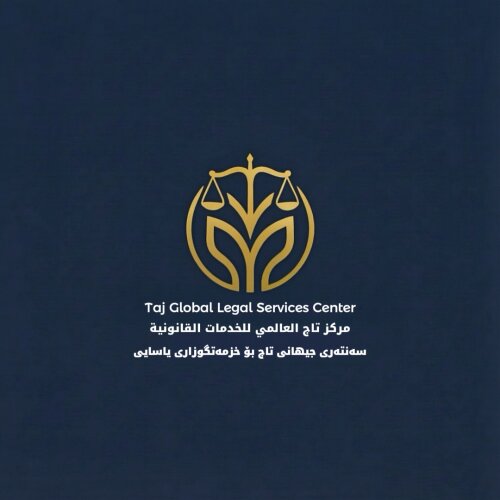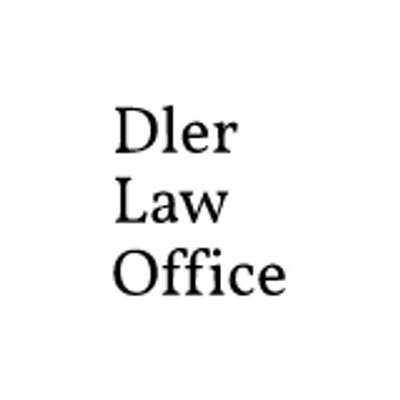Best Lawsuits & Disputes Lawyers in Iraq
Share your needs with us, get contacted by law firms.
Free. Takes 2 min.
Or refine your search by selecting a city:
List of the best lawyers in Iraq
About Lawsuits & Disputes Law in Iraq
Lawsuits and disputes in Iraq are governed by a blend of civil, Islamic, and customary legal principles, reflecting the country's unique historical and cultural legacy. The judiciary system allows for various types of legal claims, including civil, commercial, family, and criminal cases. Iraq's civil law system largely draws upon the French model, with Iraqi courts interpreting and enforcing laws codified by the national legislature. While the system attempts to provide a structured framework for resolving disputes, the complexity and evolving nature of Iraq's legal landscape can present challenges to individuals unfamiliar with it.
Why You May Need a Lawyer
Engaging a lawyer is crucial in navigating the intricate legal processes involved in lawsuits and disputes. Common situations where legal assistance may be required include:
- Drafting and enforcing contracts or resolving commercial disputes.
- Handling real estate transactions and property disputes.
- Addressing family law matters such as divorce and inheritance issues.
- Defending or pursuing criminal charges.
- Understanding and complying with regulatory and administrative laws.
A qualified attorney can offer strategic advice, representation in court, and help mediate between conflicting parties to achieve a satisfactory resolution.
Local Laws Overview
Key aspects of local laws related to lawsuits and disputes in Iraq include:
- The enforcement of contractual obligations is primarily overseen by the civil courts.
- Property rights are subject to both legislative statutes and historical land use customs.
- Family laws are heavily influenced by Islamic law, particularly concerning personal status matters.
- Commercial disputes typically involve the application of commercial codes, which may be supplemented by international trade agreements.
- Civil procedure regulations dictate the framework for litigation, including timeframes, evidence submission, and appeals.
An understanding of these local laws and procedural regulations is essential to effectively manage any legal dispute or lawsuit in Iraq.
Frequently Asked Questions
1. What is the process to file a lawsuit in Iraq?
To file a lawsuit, you must submit a formal complaint to the appropriate court, pay any required fees, and follow the procedural rules established under Iraqi civil procedure laws.
2. What are the common types of disputes handled by Iraqi courts?
The Iraqi judiciary handles various disputes, including civil, commercial, family, and criminal cases. Each type of dispute may require specific legal expertise and procedures.
3. How long do court proceedings typically take in Iraq?
The duration of court proceedings can vary widely based on the case's complexity, the type of dispute, and court backlog. Cases may take several months to years to reach resolution.
4. Can foreign nationals file lawsuits in Iraq?
Yes, foreign nationals can file lawsuits in Iraqi courts. However, they may face additional procedural requirements and should seek legal counsel familiar with international and local law.
5. Is mediation an option for dispute resolution in Iraq?
Mediation is increasingly recognized as an alternative dispute resolution method in Iraq, particularly for commercial and family disputes, allowing parties to reach mutually agreeable terms outside of court.
6. What are the legal fees for filing a lawsuit in Iraq?
Legal fees can vary based on the nature of the lawsuit, lawyer fees, and court processing costs. Clients should discuss potential fees upfront with their legal representation.
7. Do Iraqi courts recognize electronic evidence?
Iraqi courts have begun to accept electronic evidence in legal proceedings, provided it meets certain authenticity and reliability standards.
8. Is there a statute of limitations for claims in Iraq?
Yes, Iraq has statutes of limitations that establish the timeframe within which legal claims must be filed. These vary based on the nature of the claim and legal area.
9. What role does Islamic law play in Iraqi disputes?
Islamic law significantly influences personal status matters such as marriage, divorce, and inheritance, which can affect the outcome of relevant disputes.
10. Can court decisions be appealed in Iraq?
Yes, decisions made by lower courts can typically be appealed to higher courts, provided the appeal is filed within the designated timeframe and meets legal grounds for consideration.
Additional Resources
Individuals seeking more information about lawsuits and disputes in Iraq may find the following resources helpful:
- The Ministry of Justice - Offers official legal documents, publications, and guidance.
- The Iraqi Bar Association - Provides access to a network of licensed attorneys and resources for legal representation.
- Local Chambers of Commerce - Often provide mediation services for commercial disputes.
- Law schools and universities - May host legal clinics offering advice or assistance.
Next Steps
If you require legal assistance in lawsuits and disputes, consider the following actions:
- Identify the type of legal issue at hand to seek specialized legal advice.
- Consult with a licensed Iraqi lawyer experienced in handling similar disputes.
- Gather all necessary documentation and evidence related to your case.
- Understand the procedural requirements and potential costs involved.
- Prepare for initial consultation by outlining your concerns and desired outcomes.
By taking these steps, you will be better equipped to navigate the legal system and protect your rights effectively.
Lawzana helps you find the best lawyers and law firms in Iraq through a curated and pre-screened list of qualified legal professionals. Our platform offers rankings and detailed profiles of attorneys and law firms, allowing you to compare based on practice areas, including Lawsuits & Disputes, experience, and client feedback.
Each profile includes a description of the firm's areas of practice, client reviews, team members and partners, year of establishment, spoken languages, office locations, contact information, social media presence, and any published articles or resources. Most firms on our platform speak English and are experienced in both local and international legal matters.
Get a quote from top-rated law firms in Iraq — quickly, securely, and without unnecessary hassle.
Disclaimer:
The information provided on this page is for general informational purposes only and does not constitute legal advice. While we strive to ensure the accuracy and relevance of the content, legal information may change over time, and interpretations of the law can vary. You should always consult with a qualified legal professional for advice specific to your situation.
We disclaim all liability for actions taken or not taken based on the content of this page. If you believe any information is incorrect or outdated, please contact us, and we will review and update it where appropriate.
Browse lawsuits & disputes law firms by service in Iraq
Iraq Attorneys in related practice areas.
Browse lawsuits & disputes law firms by city in Iraq
Refine your search by selecting a city.

















